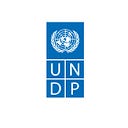Improving local food production in conflict affected communities
The prolonged crisis in North-Eastern Nigeria has resulted in a drastic decline in the region’s agriculture capabilities and capacities. The over decade long insurgency has, in many instances, led to either complete loss or limited access to farmlands as wells as displacement of countless farmers and their communities. Added to it all is the environmental factor — the variability in climate which continues to affect food production leaves the North East Nigeria more vulnerable than other regions across the country. The consequences are evidenced in communities through high unemployment rate, low economic productivity, pervasive famine and sprawling abject poverty.
The United Nations Development Programme (UNDP) through its Early Recovery Programme with support from the Government of Japan, has been responding to the immediate livelihood needs of these communities. Focusing on three states, Borno, Yobe and Adamawa respectively, the programme helps to restore and boost local food production, economies, and livelihood opportunities. In this commitment towards the revitalization of conflict affected communities, UNDP and the Agricultural Development Project (ADP) are providing professional training on sustainable agriculture including best farming techniques and practices, with an added focus on support for female farmers.
The agricultural training provides guidance in the areas of land preparation, fertilizer usage and application for different crops in different soil conditions, nature of insecticides and pesticides, sowing methods, harvesting techniques and post-harvest storage. To date, 1000 farmers in Borno, 500 in Yobe and 500 in Adamawa State respectively have benefitted from this programme.
“The training on improved farming techniques has played a vital role in introducing me to new cultivation methods. I have been farming for more than 15 years and because of the violence, I was forced to make do with limited farmland, until this intervention came along” remarked Rebecca Joseph, one of the training participants. “These trainings helped to increase my farming outputs which will help me in catering to the basic needs of my family”.
Yagana Bukarbe, a mother of 8 children and the sole provider of her family, is also a beneficiary of this project. The daily life of her community revolves around agriculture as the main source of livelihood, so the training has provided critical support. Yagana reflected: “I participated in trainings and I came to learn many new farming practices. I have been the sole provider for my large family, feeding 8 children all alone, and by applying all the techniques I was taught in this year’s planting season, I recorded a good harvest. I was then able to sell most of my produce and it provided extra income to help me take better care of my family.”
UNDP underscores the need to revitalize crisis-affected communities, including efforts that contribute to boosting local food production, by providing them with training on new farming techniques and improved varieties of seeds. This objective is to enhance long-term sustainability and resilience of food production in the conflict affected areas in Northeast Nigeria.
“Due to this timely intervention, farmers are satisfied that we do not have to rely heavily on humanitarian aid to fend for their families. Prior to the insurgency, farmers in my community Dikwa, were engaged in large scale farming and were selling their produce in places like Gamboru and neighboring country Chad. The crisis crippled our means of livelihood but thanks to UNDP for giving us hope and a second chance to do what we are passionate about. The agricultural training added substantial value to crop production practices which were not used before,” said Mustapha Hassan, one of the 1,000 farmers who benefitted from agricultural extension support to farmers in Borno State.
Progressively, the early recovery programme in North East Nigeria is restoring livelihoods and fostering socio-economic recovery for targeted population that has been affected by the crisis in the North-eastern Nigeria. For UNDP, the livelihoods and economic recovery efforts are the first critical steps towards systematically addressing underlying vulnerabilities and inequalities inherent among the populace of the conflict-affected communities in order to make progress towards sustainable and equitable development.
